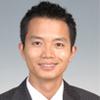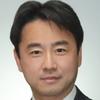Antibody Patenting: U.S. and Asian Perspectives
Meeting Patentability Requirements in the USPTO, JPO, and CNIPA
Recording of a 90-minute premium CLE webinar with Q&A
This CLE course will guide patent counsel on the patentability requirements at the USPTO, JPO, and CNIPA when claiming antibodies, recent case law that could impact those claims, and how to protect antibody inventions in light of the latest developments.
Outline
- Written description requirements for antibody claims
- Obviousness requirements for antibody claims
- Case law developments
- How examiners are instructed to assess antibody claims
- How to best protect antibodies globally and how broadly claims should be drafted
- How to provide disclosure and data in a patent application to support different claim strategies
Benefits
The panel will review these and other relevant issues:
- How broadly can the applicant claim? How much support is needed on a filing?
- What are the differences between U.S. requirements, JPO requirements, and CNIPA requirements?
- What is a sufficient description of a genus? Can functional language be included?
- When can post-filing data be used?
- What is needed to demonstrate the nonobviousness of antibody claims in different jurisdictions?
Faculty

Jeffrey M. Jacobstein
Partner
Finnegan Henderson Farabow Garrett & Dunner
Mr. Jacobstein focuses on strategic client counseling, including due diligence, patent prosecution, and post-grant... | Read More
Mr. Jacobstein focuses on strategic client counseling, including due diligence, patent prosecution, and post-grant proceedings, with an emphasis on biotechnology and the life sciences. His experience includes prosecuting and appealing applications within the USPTO, as well as post-grant proceedings and larger portfolio management, licensing, and opinion work. He has conducted numerous evaluations for diligence, clearance, and freedom-to-operate assessments, and has extensive experience providing patentability, validity, enforceability, and infringement opinions.
Close
Dr. Amanda K. Murphy, Ph.D.
Partner
Finnegan Henderson Farabow Garrett & Dunner
Dr. Murphy focuses her practice on client counseling and patent prosecution for a range of clients. She prepares new... | Read More
Dr. Murphy focuses her practice on client counseling and patent prosecution for a range of clients. She prepares new patent applications, prosecutes U.S. and foreign applications, and represents applicants at appeals and oral hearings before the PTAB. She has experience in prosecuting inter partes and ex partes reexamination applications, reissue applications, and patent term extension applications for approved pharmaceuticals, including obtaining supplemental protection certificates in Europe.
Close
Daniel Miao Cheng
Director, Founding Partner
Cheng & Peng
Mr. Miao Cheng is an experienced Chinese patent attorney and has been practicing Chinese law for 16 years. His practice... | Read More
Mr. Miao Cheng is an experienced Chinese patent attorney and has been practicing Chinese law for 16 years. His practice area includes patent infringement litigation, patent administrative litigation, patent invalidation, patent drafting and prosecution, licensing and transaction, FTO, due diligence, and legal opinions; trademark prosecution, opposition, invalidation and licensing. He has represented Pfizer, Roche, Eli Lilly, AstraZeneca, Novo Nordisk, Bayer, Merck, Wyeth, Ajinomoto, among others in patent litigation.
Close
Osamu Yamamoto
Partner, Patent Division, Chief of Chemical Section
Yuasa and Hara
Mr. Yamamoto is an experienced patent attorney. He has 10 years of experience in biotechnology and pharmaceutical... | Read More
Mr. Yamamoto is an experienced patent attorney. He has 10 years of experience in biotechnology and pharmaceutical research at a chemical company before specializing in intellectual property. He has represented a variety of companies in the fields of food and beverages, diagnostics, biotechnology and pharmaceuticals. He is experienced in patent prosecution, invalidation trials and infringement lawsuits.
Close